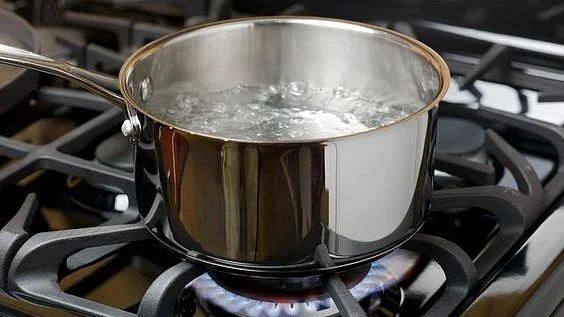The pervasive presence of tiny plastic particles, known as microplastics, in various facets of life, including food, breast milk, and even clouds, has sparked concern worldwide. However, a recent study suggests a surprisingly simple solution to mitigate this issue: boiling water.
Published Wednesday in the journal Environmental Science & Technology Letters, the research by Zhanjun Li and Eddy Y. Zeng reveals that boiling and filtering water could remove up to nearly 90 percent of microplastic particles. The study, conducted by professors at Guangzhou Medical University and Jinan University, respectively, analyzed tap water samples from 14 countries worldwide, finding microplastics in 129 out of 159 samples.
The health implications of ingesting these minute plastic particles are not yet fully understood. While a recent World Health Organization report highlighted potential health risks associated with microplastic exposure, it emphasized the need for further research.
Chris Reddy, a senior scientist at the Woods Hole Oceanographic Institution, commented on the ongoing scientific exploration, stating, "Science takes a long time. The picture is still getting worked out." Reddy emphasized the importance of limiting the intake of non-natural substances.
Explaining the mechanics behind boiling water's efficacy in reducing microplastics, the researchers revealed that in "hard" water, containing high concentrations of minerals like calcium and magnesium, the process triggers the solidification of calcium carbonate, commonly found in tap water. This solidification encases the plastic particles, facilitating their removal through basic filtration methods, such as using a coffee filter.
However, the researchers cautioned that the effectiveness of this method may vary depending on water quality and microplastic concentrations, urging further investigation into its broader implications. While boiling water offers additional health benefits by eliminating potentially harmful microbes, parasites, and viruses, the researchers advise allowing the water to settle for 5 to 10 minutes before filtering out the solids.
Reddy suggested that while boiling water may not be necessary for everyone, it presents a tangible and accessible solution to address microplastic contamination, particularly in regions with "harder" water. He emphasized the potential for meaningful, widespread change in addressing plastic pollution.














.png?auto=format%2Ccompress&fit=max&format=webp&w=376&dpr=2.0)













